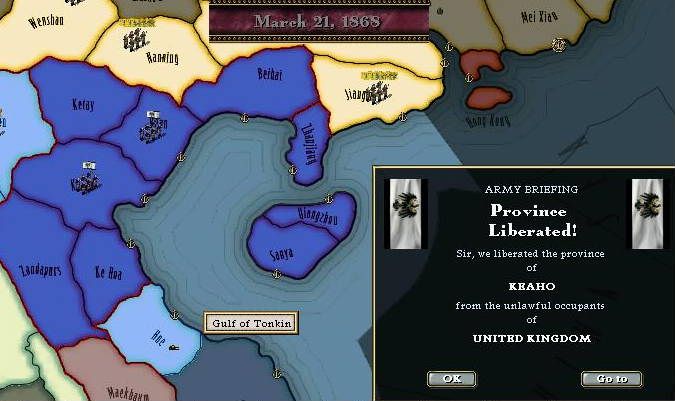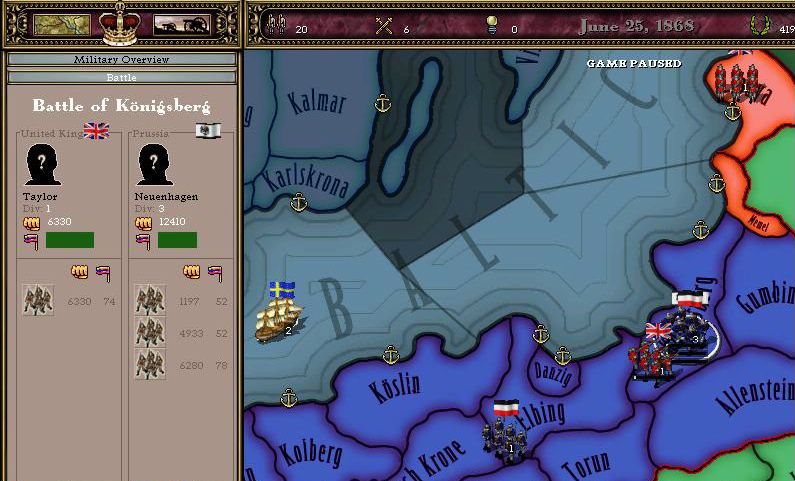Britain is at war with Spain?
Did I miss something?
Or perhaps I simply forgot it over all these months.
Did I miss something?
Or perhaps I simply forgot it over all these months.
anonymous4401 said:Britain is at war with Spain?
Did I miss something?
Or perhaps I simply forgot it over all these months.
Corsario Rojo said:Congratulations, Great AAR.
Rensslaer said:Corsario, thank you very much! I'm glad you're enjoying it. Naturally, that's why I write it... partly.
The next installment of the Adventures of Joachim Longanecker is pending soon, with much more to follow.
Actually, I now have a rough plan for the AAR all the way up to 1880!!! I had a burst of activity this week.
Thank you all again!
Rensslaer

what forces do the British have in Alaska? IMHO, Alaska would look GOOD in Prussian Blue!Rensslaer said:...At the very end of 1868, the 8th Corps arrived off the coast of British-owned Alaska.
Well, the whole war at this point is kind of a tug of war. We gain some, they gain some... Kind of balances out thus far. Prussia's not happy because the debt is growing intense.Draco Rexus said:So, from what I recall, the Brits are getting the butts handed to them in China, but not Southeast Asia, in the Pacific, and in Europe, while they are being led on a merry chase in sub-Sahara Africa, right? That's nice, very nice.
Actually, the giant is still slumbering. At this point I hadn't seen the USA do anything of any kind of import, um.... ((thinks hard)) ... um, ever!Draco Rexus said:Question for you. With the arrival of a Prussian corps of the coast of North America, what is the U.S. being doing of late? Are they worthy of being wary of, or are they beneath concern of Prussia?
Wow, that is quite a coincidence!!! :wacko: Once, when I'd created a Presidential Election game, I had friends play and one friend who I'd known a few years picked the name of a character from a sci-fi story I'd written a decade previous.Draco Rexus said:I must tell you, that since Kapitan Longanecker's first appearence there has been something buzzing in the back of my head about him, and while reading about his lasting exploit (okay, listening in to one's commanding general discuss his options isn't much of an exploit, but cut the poor man some slack, eh?), I finally dawned on my what it was. I used to date a young lady by the name of Longanecker whose great-grandfather fought in WWI and his name was Joachim. Wild, no?

